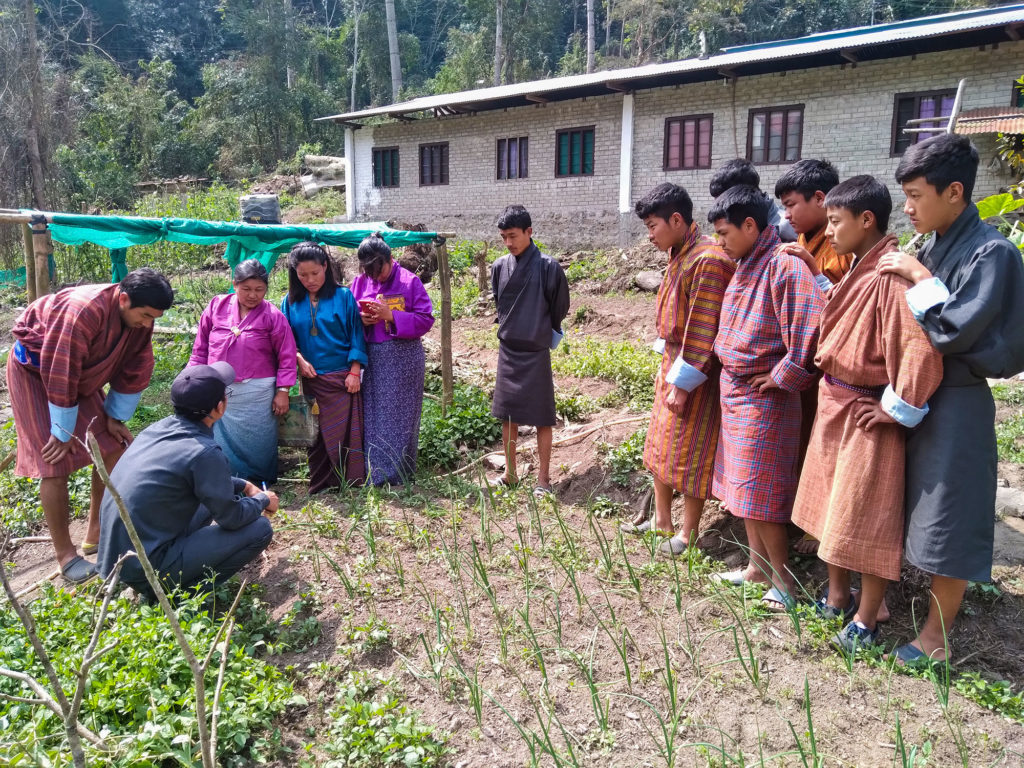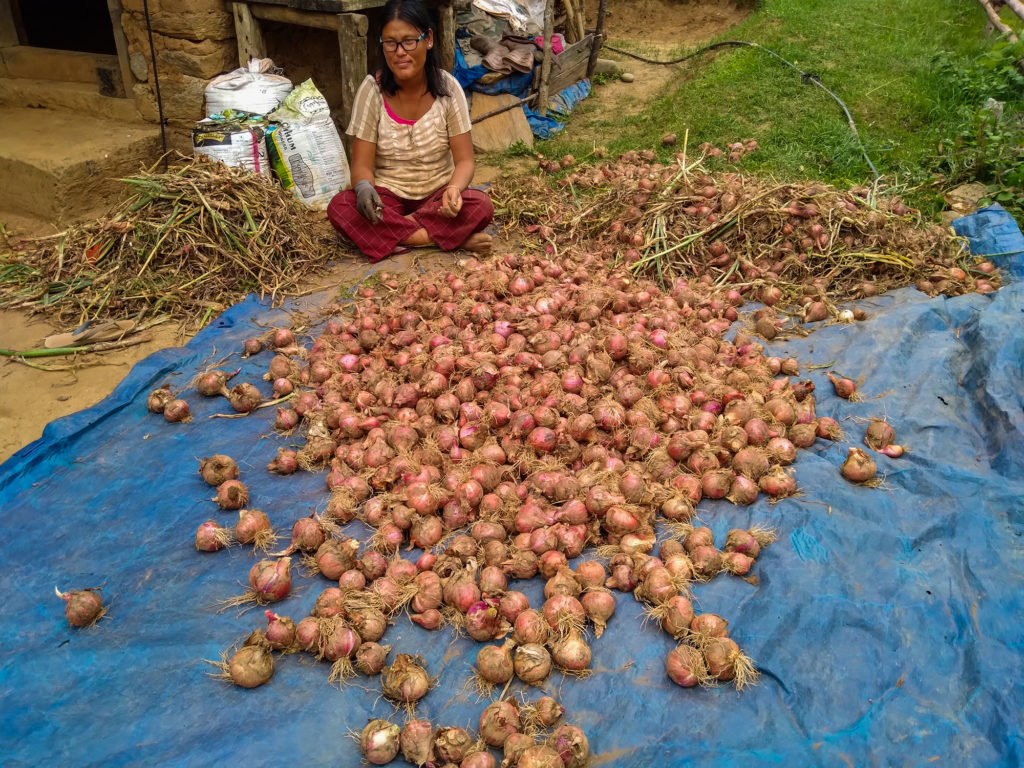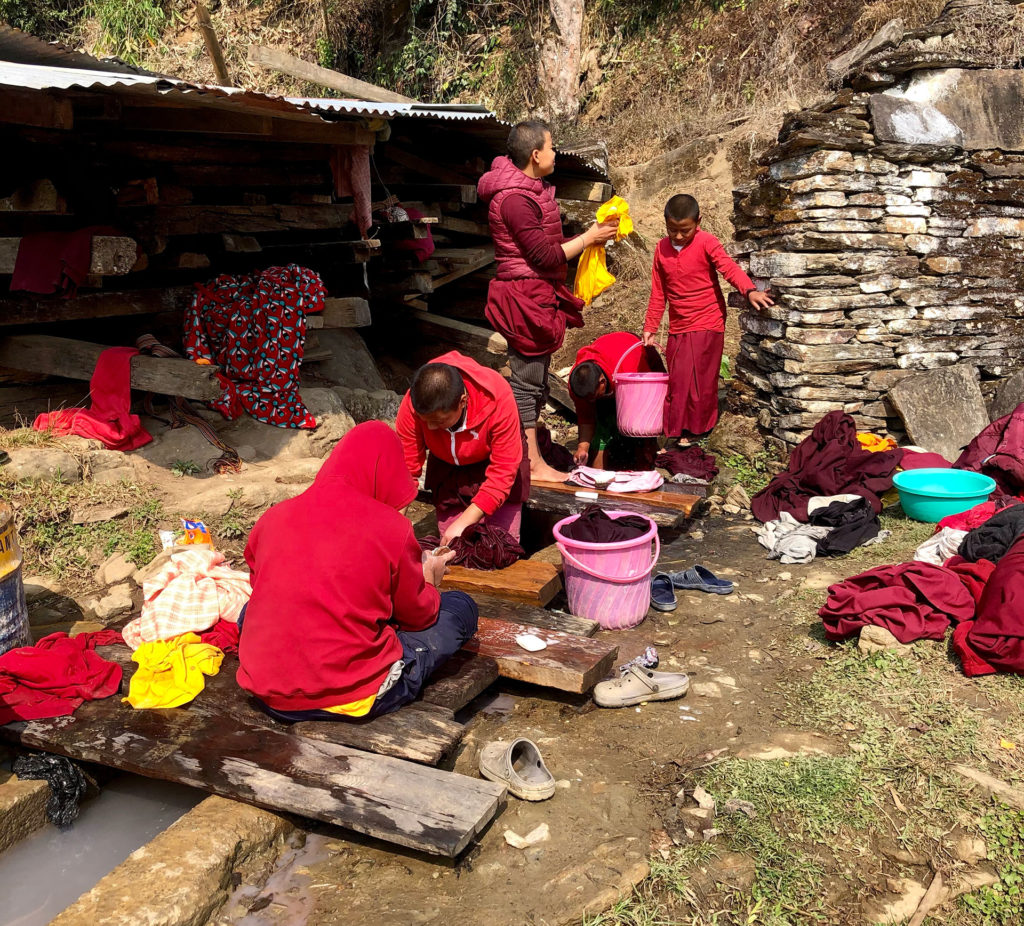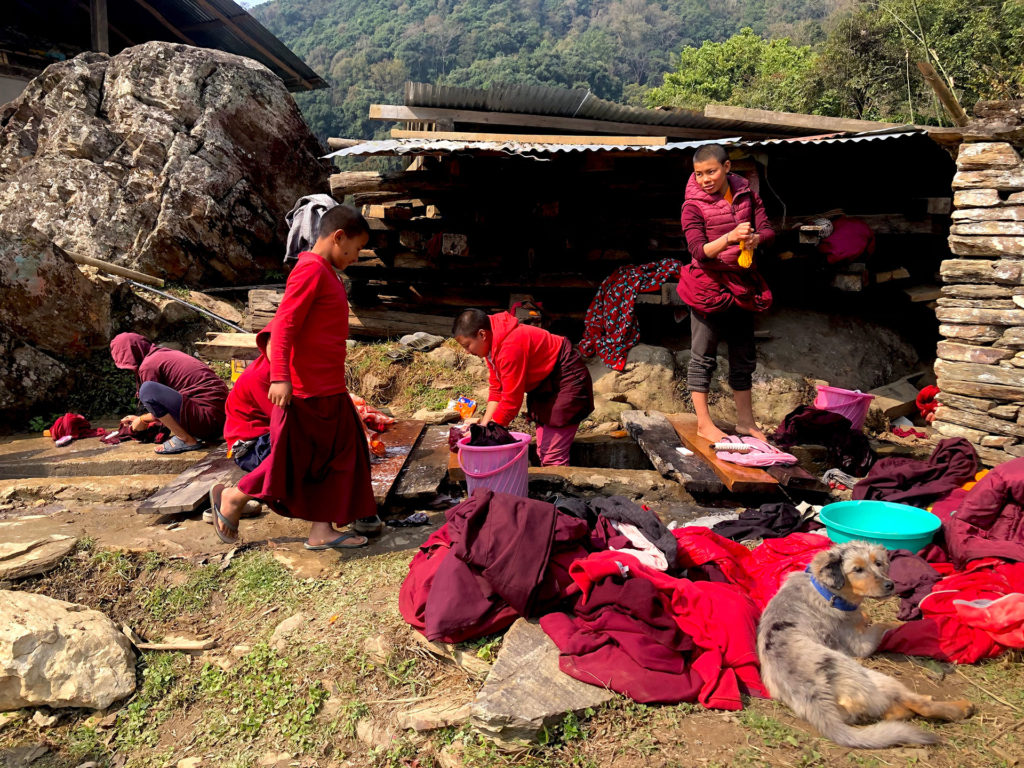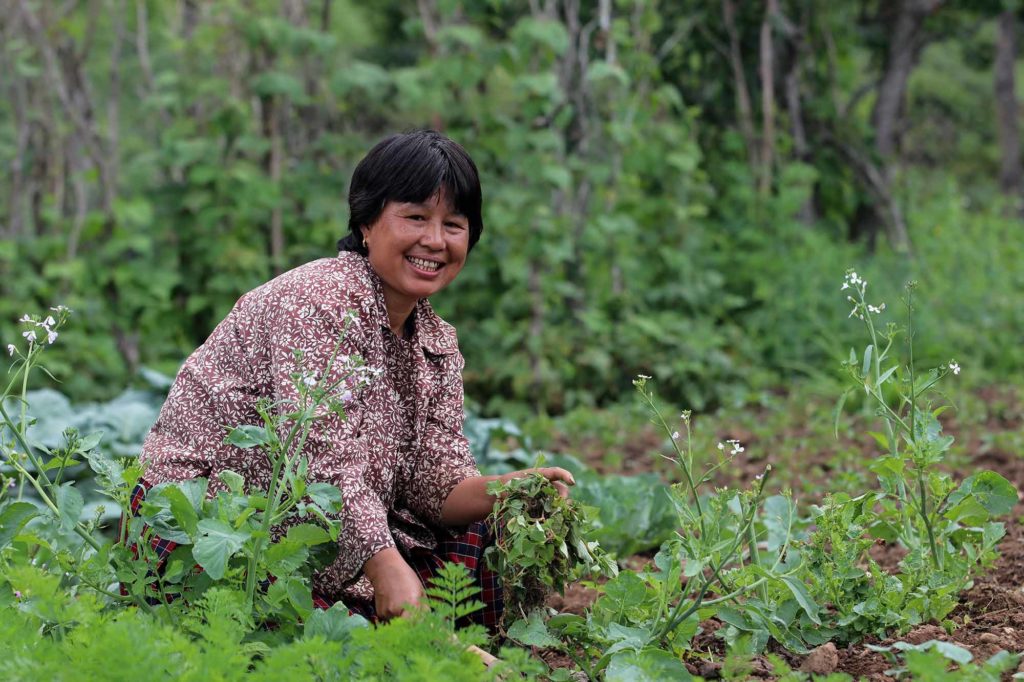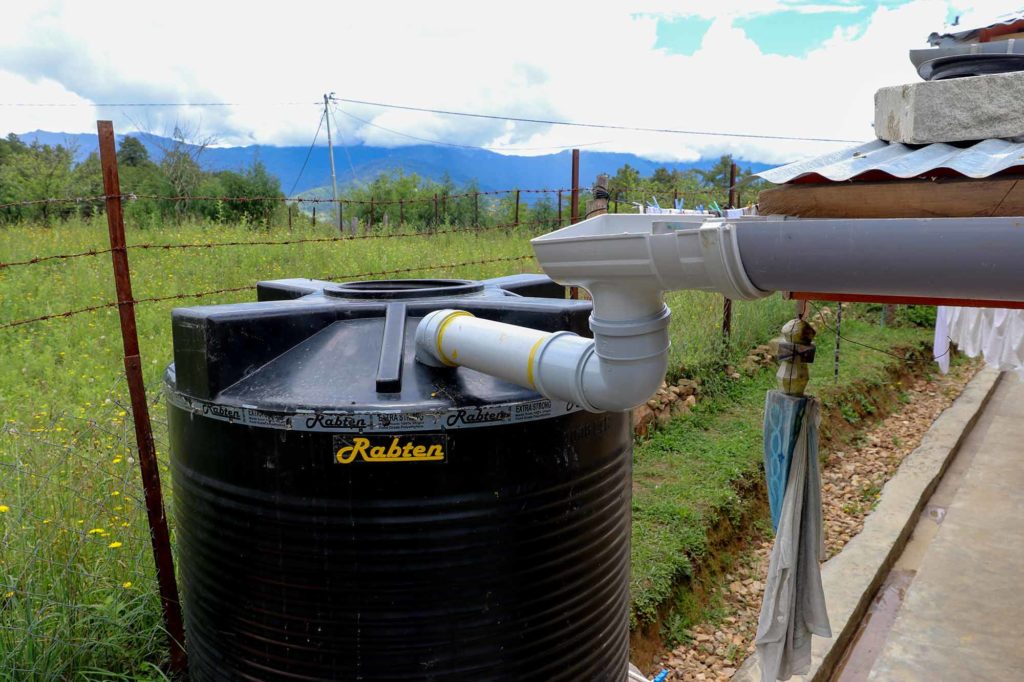November 17, 2021
Managed directly by the Thimphu Office, the Small Grants Program supports projects that complement and consolidate the Foundation’s broad program goals to uplift the four pillars of Gross National Happiness. The program offers immediate support to a number of diverse projects on the ground each year, with quick results, and has been instrumental in its ability to adapt to emerging needs throughout the COVID-19 pandemic. This year, the program supported three grants for a total of $54,500 across sectors such as employment generation, food and water security, and more.
Small Local Action to Pursue the National Aspiration of Food Self-Sufficiency and Security
The pandemic revealed that it is about time that Bhutan seriously pursues its national aspiration of food self-sufficiency. Over the past year, effects from lockdowns have highlighted inefficiencies in the food supply chain especially in terms of access to the market. Given this context, the Bhutan Foundation provided a small grant to the Khengrig Namsum Cooperative (KNC) to support youth employment and increase vegetable production to meet local demand in Zhemgang in Southern Bhutan. The KNC is a supply chain cooperative that works with 230 farmers from four villages (Nangkor, Ngangla, Pangkhar, and Trong) in Zhemgang.
Farmers in the Lower Kheng region faced challenges with market access, and therefore large amounts of vegetables went bad before they could ever reach the market. The farmers lacked adequate postharvest knowledge and had limited access to simple technologies like crates and proper storage to retain vegetable freshness and increase shelf life. Through the small grants support, a common facility for curing and two green poly houses at KNC’s main vegetable center were established. This has helped farmers reduce postharvest loss, add value to farm produce, and increase off-season/winter vegetable production. This project enhanced the farmers’ knowledge about postharvest production such as storage technology, curing via drying and packaging, and hands-on experience on production, seedling cultivation, crop management, and harvesting.
Innovative water harvest and climate-proof water supply technology
In collaboration with the Bhutan Water Partnership housed under the Royal Society for the Protection of Nature, the Bhutan Foundation supported an innovative water harvest and climate-proof water supply technology in Zhemgang in Southern Bhutan and Paro in Western Bhutan.
In Zhemgang, the community mainly consists of 35 nuns from the Pema Chopheling Nunnery, people with disabilities, orphans, and low-income households. The nunnery was using unsafe water from open-channel streams, which are actually meant for irrigation purposes. Through the small grants program, a safe and potable water source for drinking and sanitation was set up using untapped water sources nearby, and an upgraded water reservoir tank was set up to serve at least 250 community members.
Chubjakha village is one of the smallest communities in Paro, with a population of 200, and is also one of the most water-stressed communities in the area. Its primary source of water is 4 miles away. Collectively, the community owns 50 acres of dry land, and agriculture is its main source of income. However, due to water scarcity, only 20 of the 50 acres are under cultivation and more than 30 acres are left fallow. Through the small grants program, the Foundation funded an enterprising women’s group, the Chubjekha Aumtshu Chithuen Tshogpa, to install 10 roof rainwater harvesting systems that will allow farmers to collect rainwater and use it for their agricultural fields. The group objective is to improve the quality of life for women in the village by increasing nutrition and income from organic farming.
